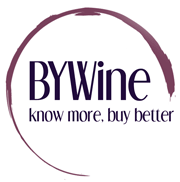Organic Bordeaux
Being organic is not a piece of cake. Being organic in Bordeaux can be particularly tricky. But it’s a challenge more and more winemakers are prepared to undertake, even in Bordeaux. The region may be criticised for lagging behind the trend towards sustainability and organic winemaking practices but this is unfair and far from the truth.

12% of French vineyards are currently organic compared to 13% of Bordeaux vineyards. And when you do the sums 13% of a large region embraces a lot of organic vineyards – almost 14% of all of the 94 000ha of France’s organic vineyards in fact so I don’t think it’s doing too badly, especially since there has been a 55% increase in Bordeaux since 2017. It’s all definitely heading in the right direction. As of 2020, there are 70 certified organic properties in the Médoc alone.
One of these is Château Fourcas Hosten which I visited some years ago as part of my role as an ambassador for the Médoc. I was immediately won over, not merely by the amazing lunch they dished up, nor because of the wonderful setting, not even by the coffee and petits-fours in glorious sunshine in the gardens. I was won over by the ambition to work the land more carefully, to consider the environment, the health of the neighbours and workers and, in the process, to make better wines. Becoming organic obviously doesn’t happen overnight and you might say that this has been in the making for Fourcas Hosten since its current owners, Laurent and Renaud Momméja of Hermès fame, took over in 2006. The wines, which now include a white, are the better for it but the work to improve doesn’t stop. They are experimenting with ewes in the vineyards to know how their, ahem, waste and hooves’ imprint might benefit the soils naturally, and have planted herbs such as camomile, comfrey and yarrow to stimulate the vines’ defence mechanism.
Tasting note 2018: Black cherry and spicy oak, this is firm even quite dense with a tannic control smoothed out by a chocolatey finish.

Over on the Right Bank, Château Jean Faure has been organic since 2017 and biodynamic since 2020. A Grand Cru Classé vineyard which, along with its neighbour, Château Cheval Blanc, favours Cabernet Franc over Merlot with as much as 60% making up the blend in the 2018. Increasing the biodiversity on the estate, recording over a 100 plant species and 60 different animals, is creating a healthy environment for the vines to thrive and for the people who work them. Possibly too for the people who drink them. As owner, Olivier Decelle, says, ‘We have planted hedges, trees and varieties that we have reintroduced. The singing of passerines, the cry of kites and the hooting of owls can again be heard here after a period of silence. We inhabit a living world.’ Many wine drinking Millennials and Generation Z, who are prepared to spend an extra 2euros per bottle for organic wine, will certainly recognise and identify with the sentiment in that statement.
Tasting note 2018: a well-structured wine with power and finesse; dark fruit fleshiness with oaky character which needs a year or two to settle when it’ll be even more rewardingly complex and balanced.

Château de La Dauphine is more of an old hand at this system of working, having been organic since 2012, certified since 2015. Again, not sitting on their organic laurels they have been recognised for their work in preserving on the estate a 240 year old sweetgum tree, one of the oldest in France, and bees have been introduced into the vineyards. Even those of us who don’t work on the land, know how essential bees are in maintaining a healthy biodiversity. Sheep are important here too, with a form of ovine internship – 200 sheep and their shepherds take up residence in the undulating Fronsac vineyards to be studied and measured with the intention of further being able to reduce their carbon footprint. Even if you’re not a shepherd I can highly recommend La Dauphine as a place to visit and I’m not alone. It is Bordeaux’s only property to have been awarded 4 golds and 1 international award from the Best of Wine Tourism competition.
Tasting note 2018: expressive black fruit aromas, bright with a typical La Dauphine concentration and vibrancy; fresh, lush, smooth with a friendly but classy appeal and bright future.

These are just three properties which are proving that Bordeaux is a region leading by example. The CIVB is fully committed to the idea of sustainable farming and expects all vine growers to have some certification by 2025 so that the use of pesticides and insecticides will continue along its downward trend. And many producers will actually be working organically albeit choosing not to risk being certified – leaving your options open makes sense for many, especially for smaller producers. There are many dynamic Bordeaux producers fully committed to the health of the land and the environment, and as younger generations take over the reins of working the vineyards you can expect to see the number of certified Bordeaux wines increase exponentially in the near future. In the meantime, these three producers’ organic wines are available now.
Château Fourcas Hosten RRP £25 Weavers of Nottingham
Château Jean Faure RRP £40-£45 Lea & Sandeman
Château de La Dauphine RRP £20-£25 Fine & Rare


